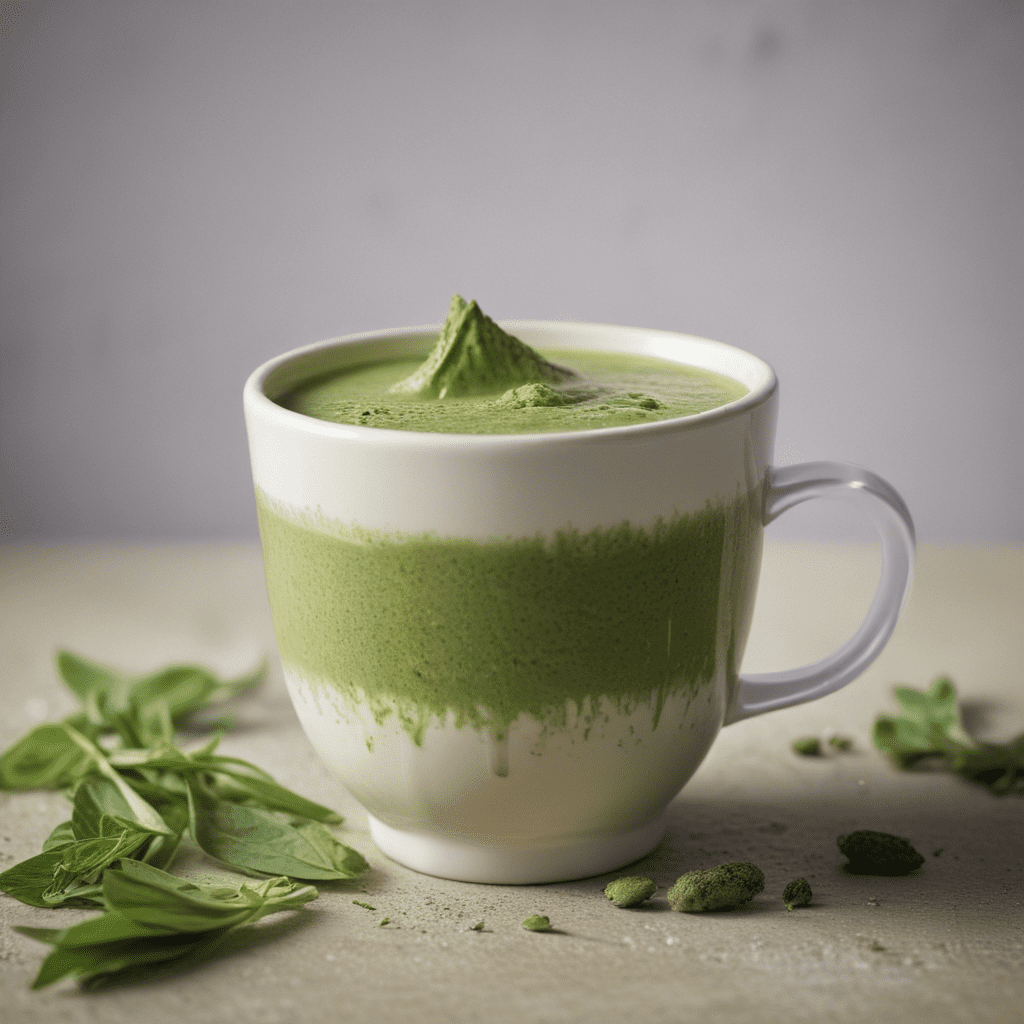
1. Introduction
Matcha, a vibrant green tea powder, has garnered increasing attention for its remarkable health benefits, including its anti-inflammatory properties. Originating in ancient Japan, matcha is finely ground from shade-grown tea leaves, preserving its potent nutrients and antioxidants. Matcha stands out for its concentrated form, delivering a more significant dose of these beneficial compounds compared to traditional green teas.
2. Matcha and Inflammation
Inflammation is a natural response to injury or infection, but chronic inflammation can contribute to various health issues. Matcha's anti-inflammatory properties play a crucial role in mitigating inflammation throughout the body. Studies have shown that matcha's catechins, particularly epigallocatechin gallate (EGCG), possess potent anti-inflammatory effects, surpassing those of other green teas.
3. The Catechins in Matcha
Catechins are a group of polyphenols found in green tea, and matcha is particularly rich in these compounds. EGCG is the most abundant catechin in matcha, known for its exceptional antioxidant and anti-inflammatory properties. Additionally, matcha contains other catechins such as epicatechin (EC), epigallocatechin (EGC), and epicatechin gallate (ECG), which contribute to its overall anti-inflammatory effects.
4. Matcha and Chronic Diseases
Chronic inflammation plays a significant role in various chronic diseases, including heart disease, cancer, and arthritis. Matcha's anti-inflammatory properties have shown promise in preventing or mitigating the progression of these diseases. Studies suggest that regular matcha consumption may reduce the risk of cardiovascular events, improve joint function, and protect against certain types of cancer.
5. Matcha as a Dietary Supplement
Consuming matcha as a dietary supplement offers a convenient way to harness its health benefits. Matcha powder can be easily incorporated into smoothies, shakes, and baked goods, providing an antioxidant boost to your daily routine. The recommended daily dosage of matcha varies depending on individual needs and preferences, but moderate consumption is generally safe.
6. Matcha and Physical Activity
Matcha's anti-inflammatory effects extend to the realm of physical activity. Athletes and fitness enthusiasts often experience inflammation as a result of intense exercise. Studies have shown that matcha can reduce post-workout muscle soreness and inflammation, promoting faster recovery. Additionally, matcha's antioxidant properties may enhance endurance and performance by protecting against oxidative stress.
7. Matcha and Mental Health
Inflammation has been linked to various mental health conditions such as anxiety, depression, and cognitive decline. Matcha's anti-inflammatory properties may play a role in improving mood and reducing stress levels. Studies have suggested that matcha consumption can enhance cognitive function, boost alertness, and improve overall well-being.
8. Other Health Benefits of Matcha
Beyond its anti-inflammatory effects, matcha offers a range of other health benefits. It has been shown to lower cholesterol levels, potentially reducing the risk of heart disease. Matcha's antioxidant properties may also protect against certain types of cancer, although more research is needed in this area. Additionally, matcha contains L-theanine, an amino acid that promotes relaxation without causing drowsiness.
9. Choosing High-Quality Matcha
Selecting high-quality matcha is crucial to reap its full benefits. Organic and shade-grown matcha is preferred, as it ensures lower levels of pesticides and higher nutrient content. When purchasing matcha, look for a vibrant green color and a fine powder texture. Store matcha in an airtight container in a cool, dark place to preserve its freshness and potency.
10. Conclusion
Matcha, with its exceptional anti-inflammatory properties, offers a potent natural remedy for reducing inflammation throughout the body. Its benefits extend from chronic disease prevention to improved physical performance and mental well-being. Incorporating matcha into your diet through dietary supplements or as a daily beverage can enhance your overall health and vitality.
FAQ
Q: How much matcha should I consume daily?
A: The recommended daily dosage of matcha varies depending on individual needs and preferences, but generally, 1-2 servings (2-4 grams) is considered safe and beneficial.
Q: Can matcha help with weight loss?
A: While matcha alone is not a magic weight loss solution, its metabolism-boosting properties and ability to promote satiety may support weight management efforts when combined with a balanced diet and exercise routine.
Q: Is matcha safe for everyone?
A: Matcha is generally considered safe for most people, but it's important to consult with a healthcare professional if you have any underlying health conditions or concerns. Matcha may interact with certain medications, so it's best to exercise caution.

